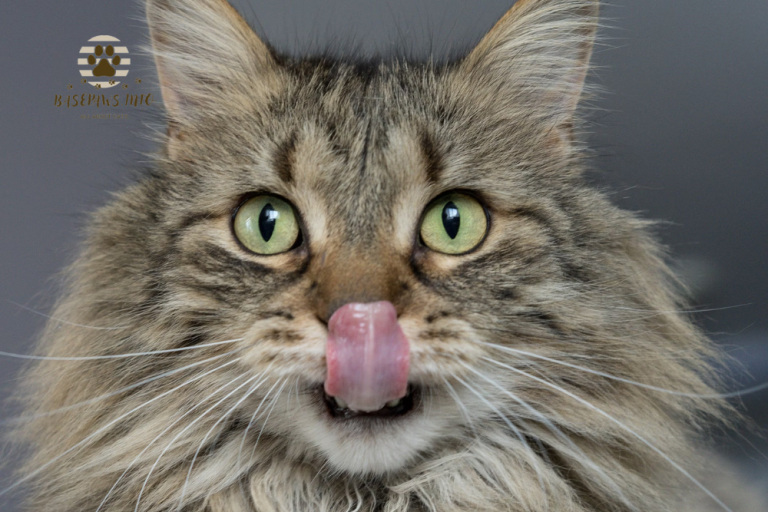How to Get Rid of Worms in Cats Naturally: Effective Remedies and Prevention Tips
Introduction
As a cat owner, you may have faced the distressing issue of your feline friend suffering from intestinal worms. Symptoms such as weight loss, vomiting, and diarrhea can be alarming. It’s essential to recognize that worms not only affect your cat’s health but can also be transmitted to other pets and even humans. The good news is that there are effective natural solutions to help combat these parasites without resorting to harsh chemicals.
In this article, we will explore various methods for How to Get Rid of Worms in Cats Naturally, focusing on herbal remedies, dietary adjustments, and preventive measures. You’ll gain insight into how to identify intestinal worms, their types, and how to recognize the signs. Our comprehensive guide provides practical solutions to keep your cat healthy and parasite-free.
By understanding the importance of preventing intestinal parasites and maintaining a strong immune system, you can create a safer and healthier environment for your furry companion. With the right knowledge and remedies at your disposal, you can effectively manage and prevent worm infestations in your cat.
Overview of Natural Deworming in Cats
Importance of Parasite Prevention
Preventing parasites is crucial to your cat’s health. Intestinal worms can lead to severe health problems if left untreated. Common issues include malnutrition, anemia, and in severe cases, death. By taking proactive steps, you can reduce the risk of your cat contracting these harmful parasites.
Natural deworming solutions not only address existing issues but also help prevent future infestations. A combination of good hygiene, a balanced diet, and natural remedies creates a holistic approach to keeping your cat healthy. Let’s dive deeper into understanding worms in cats and how you can effectively combat them.
Worms in Cats
What Are Intestinal Worms in Cats?
Intestinal worms are parasites that reside in your cat’s digestive tract, consuming nutrients meant for your pet. These worms can significantly impact your cat’s health and quality of life.
How Do Cats Get Intestinal Worms?
Cats can contract intestinal worms through various means:
- Ingesting contaminated food or water: Cats that scavenge or eat raw meat may ingest worms or their eggs.
- Eating infected rodents or animals: Hunting behavior can lead to exposure to worms from their prey.
- Flea bites, which can transmit certain types of worms: Fleas can carry tapeworm eggs, which are ingested when a cat grooms itself.
Understanding how worms are transmitted is vital for prevention.
Types of Intestinal Worms in Cats
There are several types of intestinal worms that can affect cats. Here’s a breakdown:
| Type of Worm | Description |
| Roundworms | The most common type, often passed from mother to kittens during nursing. They can grow up to several inches long and may be visible in the feces or vomit. |
| Tapeworms | Usually contracted from ingesting fleas. These worms can be recognized by the rice-like segments found in the cat’s feces. |
| Hookworms | These attach to the intestinal lining and can cause anemia, leading to lethargy and weakness. |
| Whipworms | Less common in cats but can lead to diarrhea and weight loss. They attach to the intestinal wall and cause inflammation. |
Clinical Signs of Intestinal Worms in Cats
If your cat has worms, look for these common symptoms:
- Weight loss: Despite having a normal or increased appetite.
- Vomiting: May include worms in the vomit.
- Diarrhea: Sometimes with blood or mucus.
- Bloated abdomen: Particularly in kittens, which may appear pot-bellied.
- Lethargy: Lack of energy and enthusiasm for play.
Observing these signs can help you take prompt action. If you suspect your cat has worms, it’s crucial to consult your veterinarian for a proper diagnosis and treatment plan.
How Veterinarians Diagnose Intestinal Worms in Cats
Veterinarians diagnose intestinal worms through a fecal examination, looking for eggs or larvae under a microscope. This test helps identify the type of worm present, which is crucial for effective treatment. Some veterinarians may also recommend additional tests or diagnostics based on your cat’s clinical signs.
Natural Remedies for Deworming Cats
Natural remedies can be an effective way to treat and prevent intestinal worms in your cat. They are often less harsh on your cat’s system compared to pharmaceutical treatments and can enhance overall health.
Herbal and Plant-Based Remedies
Herbal and plant-based remedies have been used for centuries to support health and combat parasites. Here are some effective options:
- Pumpkin Seeds
These seeds contain cucurbitacin, a compound that can paralyze worms, making it easier for your cat to expel them. Simply grind the seeds and mix them into your cat’s food. Dosage varies by weight, so it’s best to consult your vet. - Garlic
Garlic has been traditionally used as a natural dewormer. It may help expel worms, but it should be used cautiously and in small amounts, as excessive amounts can be toxic to cats. A pinch of finely minced garlic can be added to your cat’s food, but consult your veterinarian before trying this remedy. - Wormwood
Known for its bitter properties, wormwood has been used to treat intestinal worms. It can stimulate digestion and help eliminate parasites. Wormwood can be given in tincture form or as a tea. Again, consult your vet for appropriate dosage. - Black Walnut
Black walnut hulls are known for their antifungal and antibacterial properties, making them useful in natural deworming products. The extract can help expel worms from your cat’s system. Be sure to use a product specifically formulated for pets and follow dosing instructions carefully.
Essential Oils for Deworming
Essential oils can be beneficial, but they must be used with caution in cats, as some oils can be toxic. Here are a few options that are generally considered safe:
- Thyme oil: Known for its antimicrobial properties.
- Peppermint oil: May help repel parasites.
Essential Oil Recipe from Dr. Melissa Shelton
Dr. Shelton recommends a blend of essential oils specifically formulated for deworming. A common recipe might include a carrier oil (like coconut oil) mixed with a few drops of thyme and peppermint oil. Always dilute oils properly and consult your vet for appropriate dosages to ensure safety.
How to Get Rid of Worms in Cats Naturally: Dietary Remedies

Incorporating certain foods into your cat’s diet can help combat worms naturally and improve overall health:
- Coconut Oil
Adding coconut oil to your cat’s diet can help eliminate worms while also improving digestive health. It has antimicrobial properties and can boost your cat’s immune system. - Apple Cider Vinegar
Mixing a small amount of diluted apple cider vinegar in your cat’s water can help create an unwelcoming environment for worms. It may also aid in digestion and nutrient absorption. - Diatomaceous Earth
Food-grade diatomaceous earth can be mixed into your cat’s food. It works by damaging the worms’ outer layer, helping to eliminate them. Start with a small amount and gradually increase it, following your vet’s advice. - Turmeric
This spice has anti-inflammatory properties that can aid in healing any internal damage caused by worms. It can be sprinkled over food, but it’s best to consult your veterinarian for appropriate dosing.
Homeopathic Remedies
If you prefer holistic options, homeopathic products can be effective. Look for safe, cat-specific formulations that focus on enhancing your cat’s natural defenses against parasites. Many homeopathic remedies come in liquid form or as pellets and should be used as directed on the packaging or as advised by your veterinarian.
Kitten Dewormer Recipe
For kittens, a gentle, natural deworming recipe can include:
- 1 teaspoon of coconut oil
- 1 tablespoon of pumpkin seeds, finely ground
- 1 teaspoon of apple cider vinegar (diluted)
This recipe helps treat and prevent worms while being gentle on their systems. Ensure you start with a small amount, especially for young kittens, and consult your veterinarian to confirm it’s safe for their age and weight.
Role of Immune Health in Parasite Prevention
Strengthening Your Cat’s Immune System
A robust immune system is vital for preventing parasites. Regular exercise, playtime, and a balanced diet contribute to your cat’s overall health. Consider incorporating activities that stimulate both physical and mental engagement.
- Interactive toys: These keep your cat active and mentally stimulated.
- Regular vet check-ups: These can help catch potential health issues early.
Optimizing Diet for Parasite Prevention
Feeding your cat a diet rich in nutrients is key to supporting their immune system. Opt for high-quality, natural foods and consider including:
- Raw meat: Provides essential proteins and nutrients.
- Organic vegetables: Contribute vitamins and minerals to their diet.
- High-quality kibble: Ensure it’s free from fillers and artificial additives.
Preventing Intestinal Parasites Naturally
Importance of Cleanliness and Diet
Maintaining a clean environment is essential for preventing intestinal parasites. Regularly wash your cat’s bedding, clean litter boxes, and ensure their food and water dishes are sanitized. Additionally, keep your home free from flea infestations by vacuuming regularly and treating your home and pets with natural flea repellents if necessary.
Other Preventive Measures
- Keep your cat indoors: Reducing exposure to fleas and infected animals can greatly decrease the likelihood of worms.
- Regular vet check-ups: Routine examinations can help catch potential issues early.
- Flea control: Use natural flea control methods, such as diatomaceous earth or herbal sprays, to prevent flea infestations that can lead to tapeworms.
- Avoid raw or undercooked meats: Ensure that any meat your cat consumes is cooked thoroughly to kill potential parasites.
When to Consult Your Veterinarian
While many natural remedies can be effective, it’s crucial to monitor your cat’s health closely. If you notice any symptoms of worms or if your cat’s condition worsens, consult your veterinarian immediately. Your vet may recommend conventional treatments or additional tests to ensure your cat’s health and well-being.
Regular Check-Ups for Prevention
Regular veterinary check-ups can help prevent serious infestations. Depending on your cat’s lifestyle, your veterinarian might suggest routine fecal tests or deworming treatments as a preventive measure.
Natural deworming solutions can be effective for treating and preventing intestinal worms in cats. By utilizing herbal remedies, dietary changes, and preventive measures, you can help maintain your cat’s health and well-being. Always prioritize your cat’s safety by consulting with your veterinarian before trying new remedies. With proper care and attention, you can create a healthier, parasite-free environment for your beloved feline companion.
By addressing the issue of intestinal worms through natural means, you not only safeguard your cat’s health but also promote a holistic approach to pet care. Always stay informed about the latest natural health options and keep your furry friend happy and healthy!







